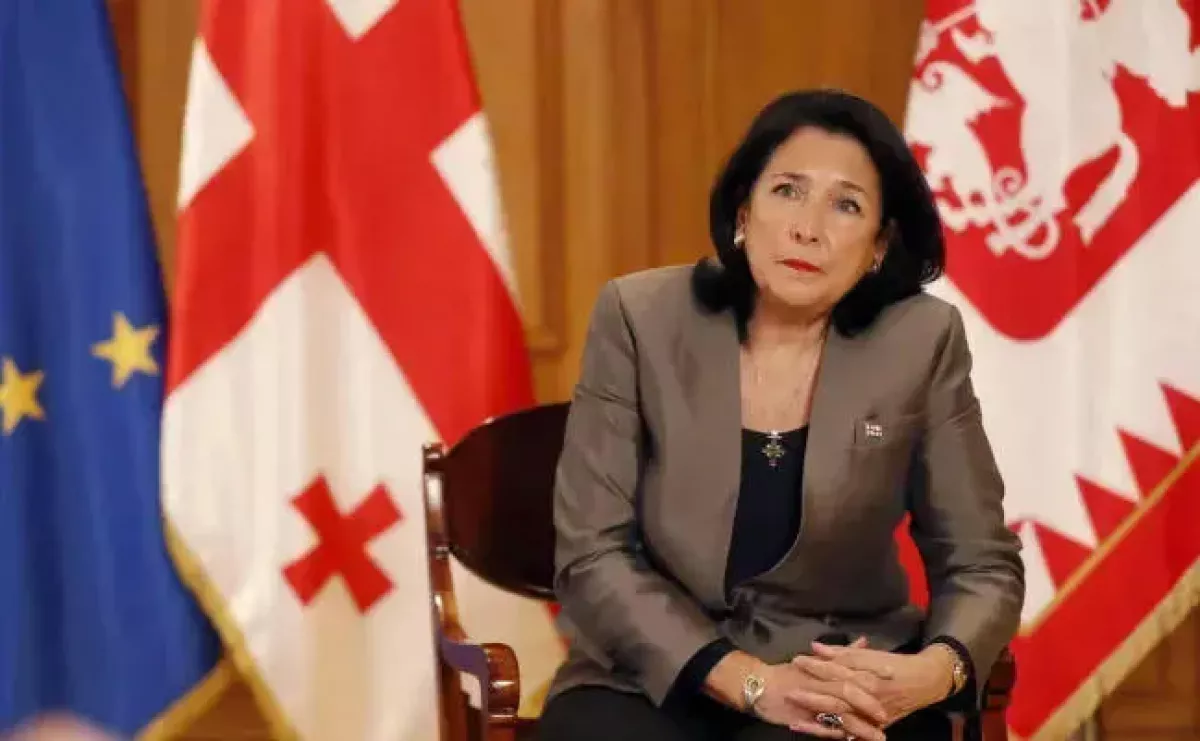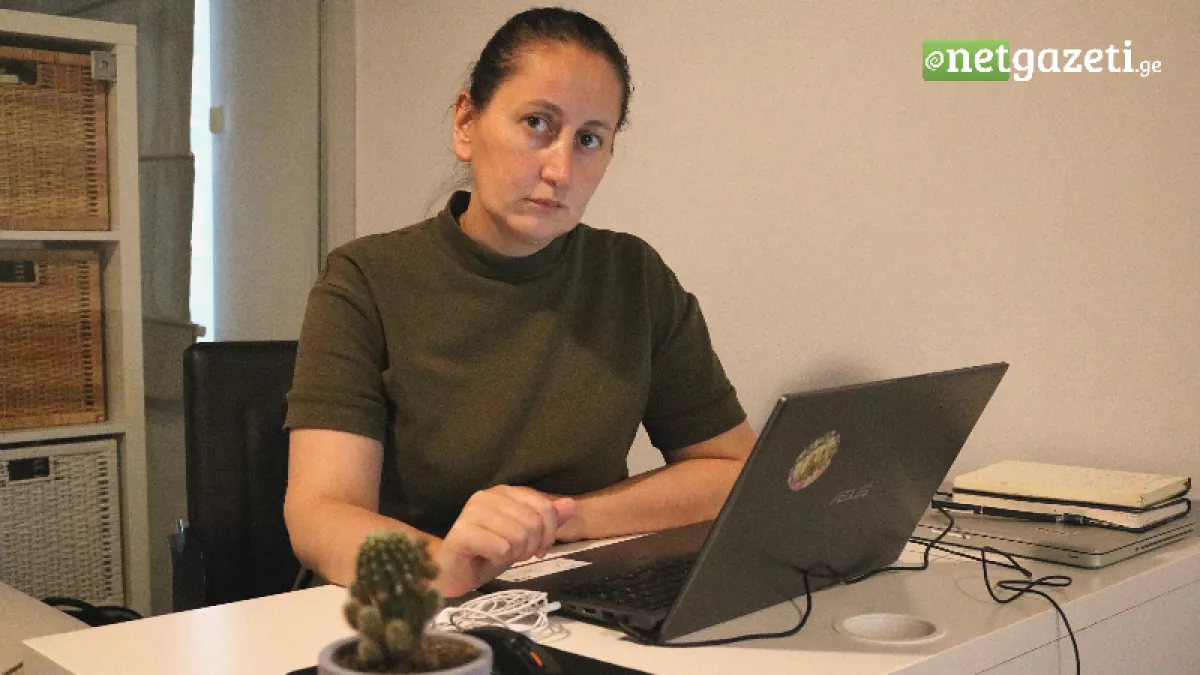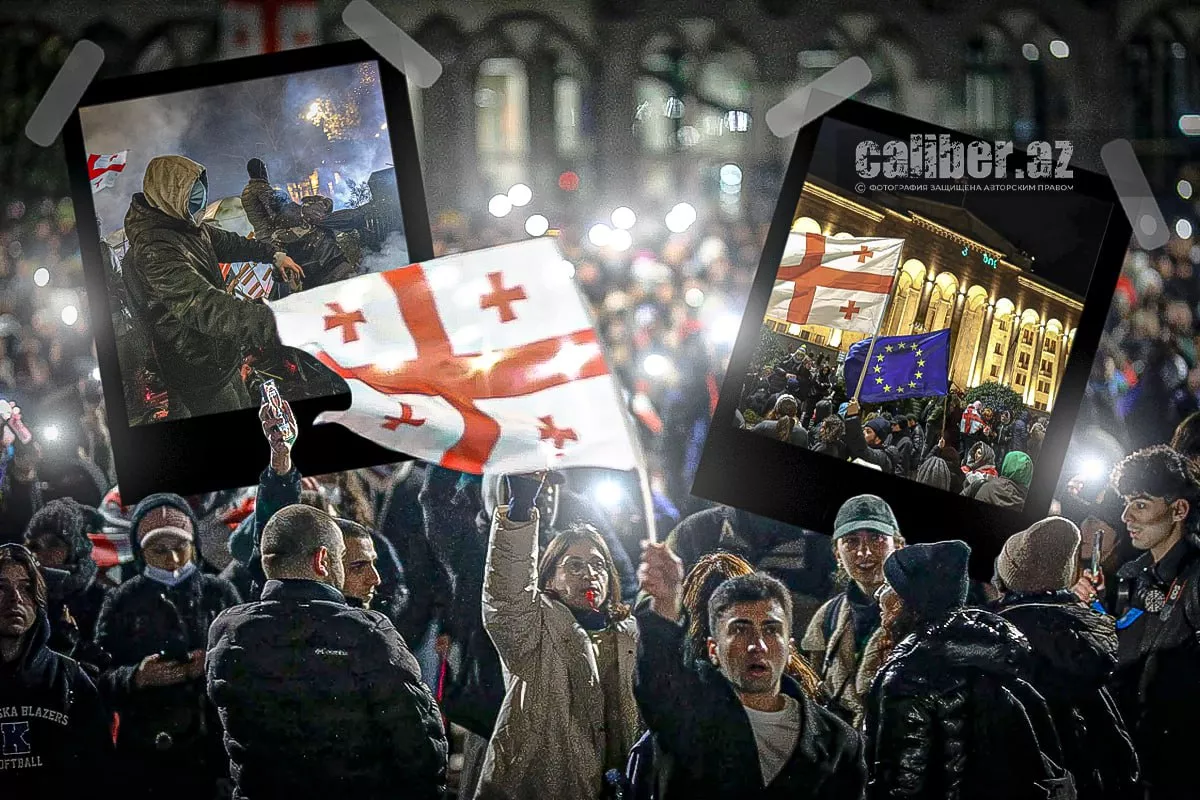USAID, hawk of Georgian opposition, and Armenian trace “Hero” in the making
During the failed attempt to stage a "Maidan" and a coup in Georgia, it was evident to the naked eye that the organizers were in desperate need of "sacred victims" and "martyrs." Former President Salome Zourabichvili was even willing to throw children under bullets to achieve this goal. Fortunately, thanks to the effective work of Georgia's law enforcement agencies, the opposition failed to create such "sacred victims." However, recent events indicate that the opposition and its Western handlers have still managed to orchestrate a "martyr" and a "victim of the regime" in Georgia. That role has been assigned to Mzia Amaglobeli, a seasoned "grant-eater" and a long-time recipient of aid from organisations such as USAID.
The founder of the online publications Batumelebi and Netgazeti, Mzia Amaglobeli, is currently in pretrial detention after slapping the head of the Batumi police during a protest. Under Georgian law, she faces a prison sentence of 4 to 7 years. It is now evident that Amaglobeli is being groomed as the future leader of the Georgian opposition, set to replace Salome Zourabichvili, the former French Foreign Ministry employee who is retiring from politics. It is no coincidence that Zourabichvili herself has called Amaglobeli the "face" of the Georgian pro-Western opposition protests and a "powerful weapon."
"This protest already has a face and a name; it is taking on an entirely different dimension. We may not fully understand it yet, but it is a very powerful weapon, and that weapon is called Mzia Amaglobeli," stated Salome Zourabichvili.

The video footage of the incident for which Mzia Amaglobeli was detained clearly shows that she was deliberately provoking arrest. As is well known, physically assaulting law enforcement officers is punishable in all countries, including those that uphold "Western democracy." Amaglobeli could not have been unaware of this, yet she most likely engaged in a calculated provocation. Judging by the way she is being promoted today, her "courage and self-sacrifice" were prearranged with those who had long funded her media ventures and were behind the attempt to stage a "Maidan" in Georgia.
In essence, Amaglobeli was already being positioned as the future opposition leader at the height of the protests—possibly after it became clear that the attempt to spark a "Maidan" following the parliamentary elections was failing. In this context, her "geopolitical stance," as reflected through her media platforms, is particularly noteworthy.
An analysis of publications from Batumelebi and Netgazeti reveals that Mzia Amaglobeli was not only actively involved in preparing the attempted coup in Georgia but also supported destabilisation efforts in other parts of the South Caucasus. Notably, no other Georgian media outlet has so fiercely defended the interests of Armenian nationalists and separatists in Azerbaijan’s Karabakh as Amaglobeli’s Netgazeti.
It is no coincidence that, alongside the anti-Georgian "European public" and representatives of the pro-Western opposition, the Armenian Community of Georgia is also actively demanding Amaglobeli’s release. This is an unprecedented case, as Armenian nationalists typically show little concern for the fate of those who do not share their bloodline or ethnic background.
Here is a statement by Artur Mirzoyan, President of the Armenian Community of Georgia, posted on the organisation’s Facebook page on 5 February 2025:
"Mzia Amaglobeli, founder and director of the online media outlets Batumelebi and Netgazeti, who has been on a hunger strike for 24 days, was taken to the ‘Vivamed’ clinic yesterday. Netgazeti is one of the few media outlets that has actively and objectively covered the post-war period in Nagorno-Karabakh. Several articles published by Netgazeti have informed the Georgian public about the atrocities that took place just 300 km away from us and the crisis caused by the nine-month blockade… of Karabakh. And all this while the main media outlets remained silent, as if nothing was happening. I express my deep respect and support for Ms. Mzia. Freedom for Mzia Amaglobeli!"
It is hardly surprising that Mzia Amaglobeli’s publication never reported on the atrocities committed by Armenian nationalists against Azerbaijani civilians, the Khojaly genocide, or the plight of Azerbaijani refugees who were forced to flee their homes in the freezing cold—trekking through mountains and forests to escape Armenian terrorists and separatists. This stands in stark contrast to the relatively comfortable departure of Armenians from Karabakh, who simply refused Azerbaijani citizenship.
Moreover, Netgazeti seems equally indifferent to the fate of Georgian refugees from Abkhazia, who were killed or expelled from their homes by the very same Armenian nationalists so admired by Amaglobeli. In 2023, Netgazeti dedicated far more coverage to the “suffering” of Karabakh’s Armenian separatists than to the plight of Georgian refugees or those still living under occupation.
What’s more, after Armenian Prime Minister Nikol Pashinyan officially recognised Azerbaijan’s territorial integrity, Netgazeti not only criticised this decision but did so by quoting the then-“foreign minister” of separatist Abkhazia, Inal Ardzinba. On 29 May 2023, Netgazeti published an article under the headline: “Ardzinba Calls Pashinyan’s Statement on Recognising Karabakh as Part of Azerbaijan a Tragedy.”
"Ardzinba also recalled that in 1992, the principles enshrined in Armenia’s Declaration of Independence and Constitution were adopted. In particular, the imperative provision of the Supreme Council of the Republic of Armenia’s resolution from 8 July 1992 states that 'any international or domestic document that refers to the "Nagorno-Karabakh Republic" as part of Azerbaijan is considered unacceptable for the Republic of Armenia,'" Netgazeti quoted the separatist as saying.
This suggests that Mzia Amaglobeli aligned herself with the stance of one of the then-leaders of the Sukhumi separatists regarding Armenian nationalist claims over Azerbaijan’s sovereign territories. She was fully aware that supporting separatism in Azerbaijan inherently meant endorsing separatism in Georgia. It is evident that this so-called “patriot” Mzia Amaglobeli has no regard for Georgia’s territorial integrity or the fate of the 300,000 Georgian refugees expelled from Abkhazia.

It seems that Mzia Amaglobeli received clear instructions from her Western handlers—to support separatism and the redrawing of borders. And she dutifully followed them. By 2023, Amaglobeli’s activities had already extended beyond Batumi and Georgia. Her publication actively opposed the recognition of the territorial integrity of South Caucasus states, effectively working against peace in the region. And this very media policy was funded by USAID.
The more evidence emerges, the clearer it becomes that separatism in the South Caucasus was originally a "Western" project. As for Russia, it was largely used as a blunt instrument in its execution. The reliance on separatism and border revisions to "restore influence" in the post-Soviet space has brought Russia nothing but trouble.
Mzia Amaglobeli continues to use her publication, Netgazeti, to orchestrate a campaign aimed at fostering "sympathy and pity" for Armenians from Karabakh among Georgian citizens—despite the fact that nothing prevents them from obtaining Azerbaijani citizenship and returning to Karabakh. Headlines such as "Six-year-old Aram, who ‘can do anything’: ‘My dream is to return to Karabakh’" and "Fourteen-year-old Eva from Karabakh: ‘I wait and believe that we will return’" were featured in Netgazeti’s extensive, emotionally charged coverage in 2024, dedicated to Armenians from Karabakh and their "memories."
However, not a single similar piece has been published about Georgian refugees from Abkhazia and the Tskhinvali region. At best, Netgazeti briefly mentions how the ruling Georgian Dream party allegedly mistreats refugees from Abkhazia. But Amaglobeli never even hints at the possibility of these refugees returning to Abkhazia. This is hardly surprising, given that USAID has funded separatist NGOs that strongly oppose the return of Georgian refugees to their homes—many of which, incidentally, have been taken over by the very Armenians Amaglobeli so passionately supports.
Meanwhile, the effort to craft Mzia Amaglobeli into the "Nelson Mandela of the Caucasus" continues. Recently, a petition was launched in Georgia calling for the immediate release of Amaglobeli, founder of the online media outlets Netgazeti and Batumelebi. The petition, distributed through one of the largest petition platforms in the world—Change.org—states: "For over two decades, she has fought for press freedom, democracy, and Georgia’s European future. Now, she sits in pre-trial detention, risking her life for the same values she has always defended. This is not just Mzia’s fight—it is a fight for all unlawfully detained prisoners, for free speech, and for Georgia’s future."
Considering that Amaglobeli has fought not only for Georgia's "European future" but also for the territorial claims of Armenian nationalists, the fact that Western powers are promoting her as a potential future leader of the Georgian opposition is deeply concerning. It suggests that the plans to turn Georgia into a "military corridor" for Armenia, which is becoming a "stronghold" of France with its aggressive revisionist ambitions, have not been abandoned. If these plans come to fruition, Georgia will not only lose its sovereignty but also risk becoming a "satellite" state of a pro-Western Armenia. This would pose a grave threat not only to Georgian statehood but to the security of the entire South Caucasus.

Small countries that act at the behest of the West often lose their sovereignty, making decisions that contradict their national interests. A telling statement on the real sovereignty of the Baltic states was made on February 12, 2025, by Georgian Prime Minister Irakli Kobakhidze. He responded to Lithuania and Estonia's imposition of sanctions on Georgia in December 2024, citing the supposed "deterioration of democracy and human rights" in the country. "Lithuania and Estonia do not have sovereignty and are acting on instructions, just like the radical opposition in Georgia. However, considering our long-standing friendship with the Estonian people, we will continue to support unilateral relations with this country," Kobakhidze stated to Georgian journalists.
However, unlike Georgia, the Baltic states are members of the EU. At least they are not forced to "be an appendage" to another small country and infringe upon their citizens' rights in the interests of its nationalists. For Georgia, a "European future" in line with Mzia Amaglobeli's views would, in addition to economic degradation, mean complete submission to the interests of Armenian nationalists, even to the point of sacrificing its territorial integrity in their favour.
Vladimir Tskhvediani, Georgia, for Caliber.Az








